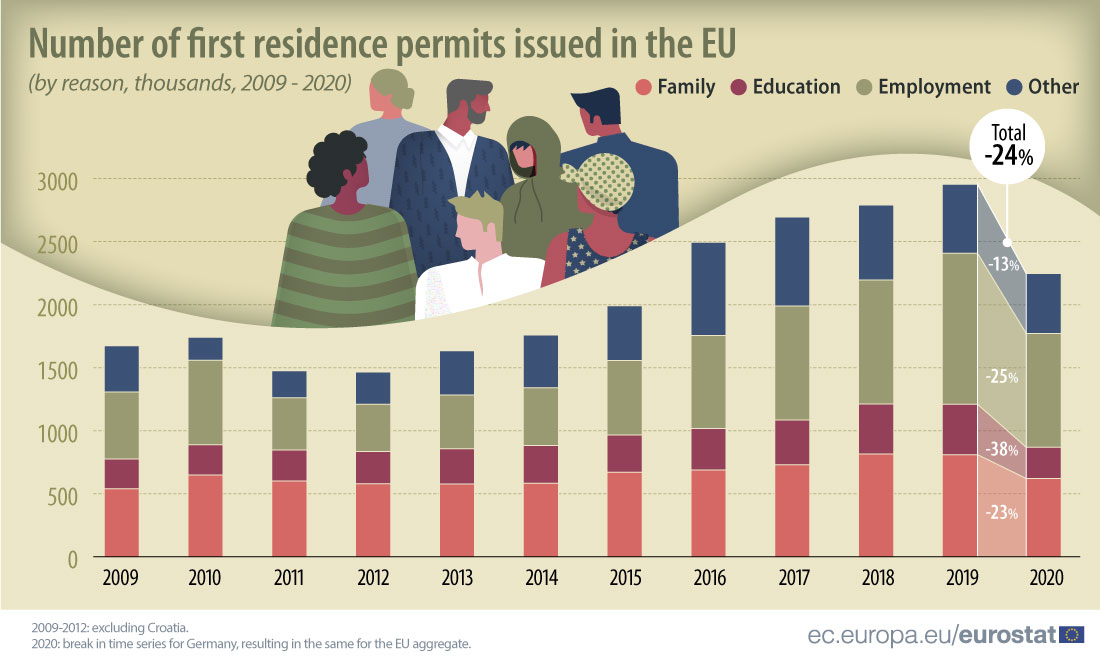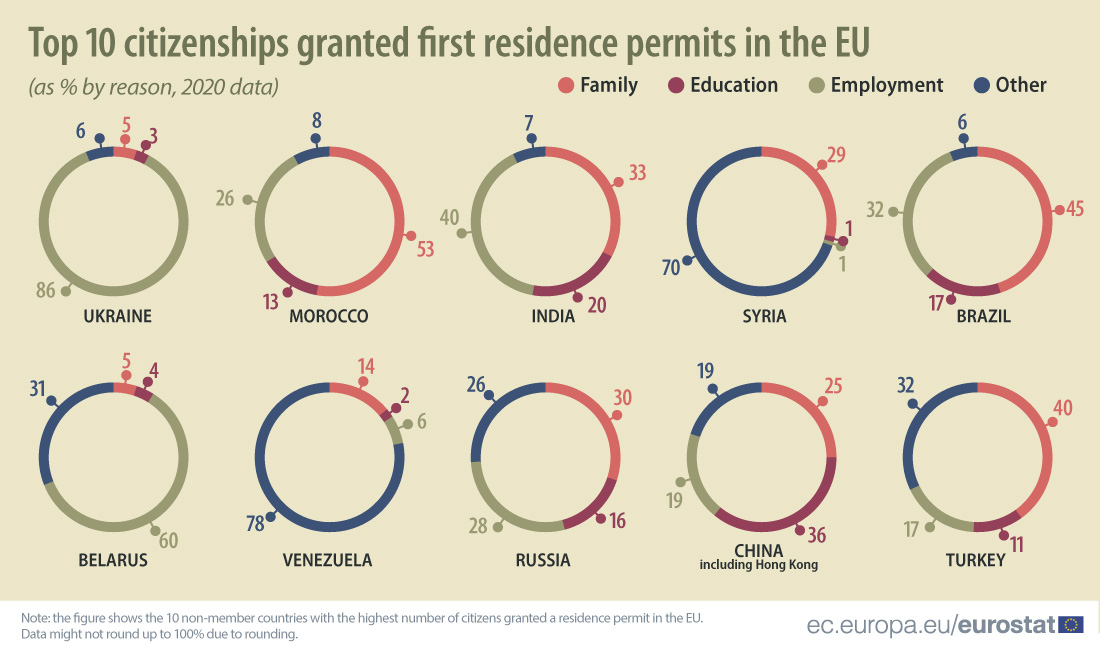In 2020, about 2.2 million first residence permits were issued in the EU to non-EU citizens. The number decreased by 24% (or -706 000) compared with 2019, the first dip seen in the upward trend observed between 2013 and 2020. This information comes from data on first residence permits published by Eurostat. The article presents a handful of findings from the more detailed Statistics Explained article on first residence permits issued during the year.
The dip in first residence permits was mainly due to the COVID-19 pandemic and the related travel and administrative restrictions imposed by the national authorities.
In 2020, 38% fewer (-153 000) residence permits were issued for education-related reasons when compared with 2019. There was also a 25% drop in residence permits for employment-related reasons (-294 000), a 23% drop for family reasons (-189 000) and a 13% drop for other reasons, including international protection (-72 000).
Employment-related reasons were the main reasons why people obtained a residence permit in the EU in 2020, accounting for 40% of all first residence permits issued. Family reasons accounted for 28%, education reasons for 11%, while other reasons, including international protection, accounted for 21%.
Source dataset: migr_resfirst
In 2020, Poland issued more than a quarter of all first residence permits granted in the EU to non-EU citizens (598 000, or 26% of total permits issued in the EU), followed by Germany (313 000, or 14% - see the notes below) and Spain (312 000, or 14%).
Only increase in first residence permits recorded in Lithuania
The only increase in the total number of permits issued in 2020 when compared with 2019 was recorded in Lithuania: 5% (from 21 400 permits in 2019, to 22 500 permits in 2020).
On the other hand, the largest decrease in the total number of permits issued in 2020 when compared with 2019 was recorded in Czechia: 54% (from 117 000 permits in 2019, to 54 300 permits in 2020), followed by Greece (53%, 42 300 to 19 800) and Malta (48%, from 21 200 to 11 100).
Poland for work, France for study
Poland topped the list of employment-related first residence permits, with 502 300 permits issued in 2020, making up 22% of all first permits issued in the EU. France issued the most education-related permits (72 700 permits, or 3%). The EU countries with the highest number of permits issued for family reasons in 2020 were Germany (130 700, or 6%), Spain (119 500, or 5%) and France (80 200, or 4%). Germany was also the top country in the EU issuing residence permits for other reasons, with 153 000 permits (7%) issued in 2020.
601 200 Ukrainians received first residence permits in the EU countries in 2020, making them the largest citizenship group among all recipients. Poland issued 488 900 of those permits (81%). Citizens of Morocco (123 400 permits, of which 56% were issued in Spain) and India (79 270, of which 14% were issued in Germany) followed. Citizens of these countries accounted for over one-third (36%) of all first residence permits issued in 2020.
Among the top 10 citizenships granted permits in the EU in 2020, employment was the main reason for permits issued to Ukrainians (86% of all first residence permits) and Belarusians (60%). Family was the prevailing reason for permits granted to Moroccans (53%) and education for permits issued to Chinese (36%). Other reasons were predominant for Venezuelans (78%) and Syrians (70%).
Source dataset: migr_resfirst
For more information:
- Eurostat Statistics Explained article on first residence permits issued and the interactive infographic
- Eurostat dedicated section of managed migration statistics
- Eurostat database of managed migration statistics
To contact us, please visit our User Support page.
For press queries, please contact our Media Support.



